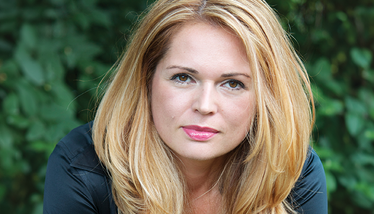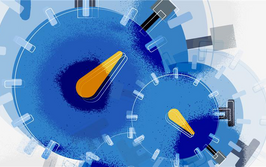Preservation and Perseverance
Sitting Down With… Stella Vnook, CEO, Likarda
| 5 min read | Interview

Credit: Author supplied
How did your journey to CEO begin?
I completed my pharmacy school residency/internship in oncology and quickly became aware of the lack of options when assigning patients brutal regimens. As a healthcare provider, whether you prescribe the medicine or the regimen, you're working with what you have. I chose to follow the path of drug discovery and commercialization by joining the pharmaceutical industry because I wanted to expand the portfolio of available drugs. It was a very long road to learning everything from drug development and healthcare education, to marketing, strategy, and managing markets, but every step got me closer to having enough ammunition and knowledge to be a good CEO.
What makes Likarda unique?
To optimize CAR-T, you can spend five to 10 years perfecting a specific construct to assure maximum efficacy or increasing the number of cells to reach the target tumor. Every time you change a construct, however, you have to go back to in vitro research, which costs a lot of time and money. Likarda’s technology can safely encapsulate the cell therapy without the need to increase the number of cells. In Fact, the technology can decrease the number of cells because we're delivering the treatment directly to the targeted organ. Furthermore, Likarda technology enables products to be shipped on dry ice rather than expensive cryopreservation and liquid nitrogen methods.
What do advanced therapy stakeholders need to do to maintain momentum in the field?
We have focussed so much on creating new treatments that sometimes we don't think enough about the role drug delivery plays in the evolution of healthcare. We can improve therapeutics and cell therapies so much more if we can figure out how to deliver the therapy directly to a tumor. We need to start thinking across the lines to improve delivery and outcomes for the patient.
We also need common goals and purposes towards improving patients' lives. Some products have marginal benefits for the patient, but the cost is driven up to suit the system, which is not in the best interest of health economics. I would rather see efforts focussed on untapped innovation and truly meeting unmet needs.
You grew up in Belarus. How did your early experiences contribute to your career?
In a communist country, your choices are dictated by the government and by policy. I think this made me very driven when I arrived in the US and it helped me to be structured. Following the Chernobyl nuclear disaster, I activated my survival mode and found the resilience required. I understood the benefits of passion in doing what you love, as well as enabling people to do their best.
When I left Belarus, my mother and I were refugees. It was a traumatic experience and I haven't looked back. Until there's some type of political change, I can’t imagine returning. Maybe decades will pass before people understand the freedom of following their dreams.
How might your mother feel about having such an impressive legacy and her daughter being the architect of that legacy?
My mother is my hero. She gave up everything – including family and friends – to take me across many countries, with no money, to reach the US. When Chernobyl occurred, people weren't allowed to know about or diagnose conditions that could transpire from the explosion. My health started to deteriorate and people said, quietly, that unless I received treatment, I probably wouldn’t have a very long lifespan. My mother sold what she could so she could get us out. She worked many odd jobs through near starvation and poverty until she earned her dietary degree again here in the US. It was just the two of us, so now I feel pressure to not let people down – especially those who have given up so much.
Other members of my family were also unique. My grandfather, a World War II veteran, encouraged both my aunt and my mom to follow the educational path. He was a firm, direct person, but he was also a respected, inspiring, and compassionate individual. He was kind and philanthropic, so I saw from them that you can be firm in your beliefs as well as a strong and compassionate leader. No matter how hard things get, I always remember where I came from.
The journey must have taken you to many places. Do you have a favorite?
I have a deep love for Italy. When we left Belarus, we weren't allowed to take much. It was one suitcase per person and very little money. We went through Poland and Austria into Italy, where we ran out of money. I was barely a teenager, and my mom was very young. She was trying to be brave but I was very angry because I didn't understand why I had to leave everything and everybody. I hadn’t eaten for a few days, but some local women came and gestured to us to come and eat. They gave us pasta and helped with a place to sleep. I'll never forget that meal and how they embraced us. It was so heartwarming coming from a harsh “survival mode” environment. That type of kindness to a stranger really shaped my life and my journey.
What do you hope to achieve in the future?
I want to ensure that the technology that Likarda has developed is in good hands with a logistics partner and a cryopreservation partner, and that a manufacturing partner will embed it into what they do. The goal is to take it to where it could be available to every therapeutic that could potentially benefit. I'm going to stay focussed on the goal and help the Likarda team achieve it.
Ultimately, at Likarda and beyond, I want to leave the same legacy my family has left for my children – it has to be inspiring and empowering, because when a person is powerless, their bar is low. I hope to live and lead with passion and purpose. I aim to demonstrate that as long as you believe in yourself, you can champion that change. If people are inspired, and they understand how to channel that passion into the purpose, we can enable new generations of leaders to continue to advance healthcare.



















